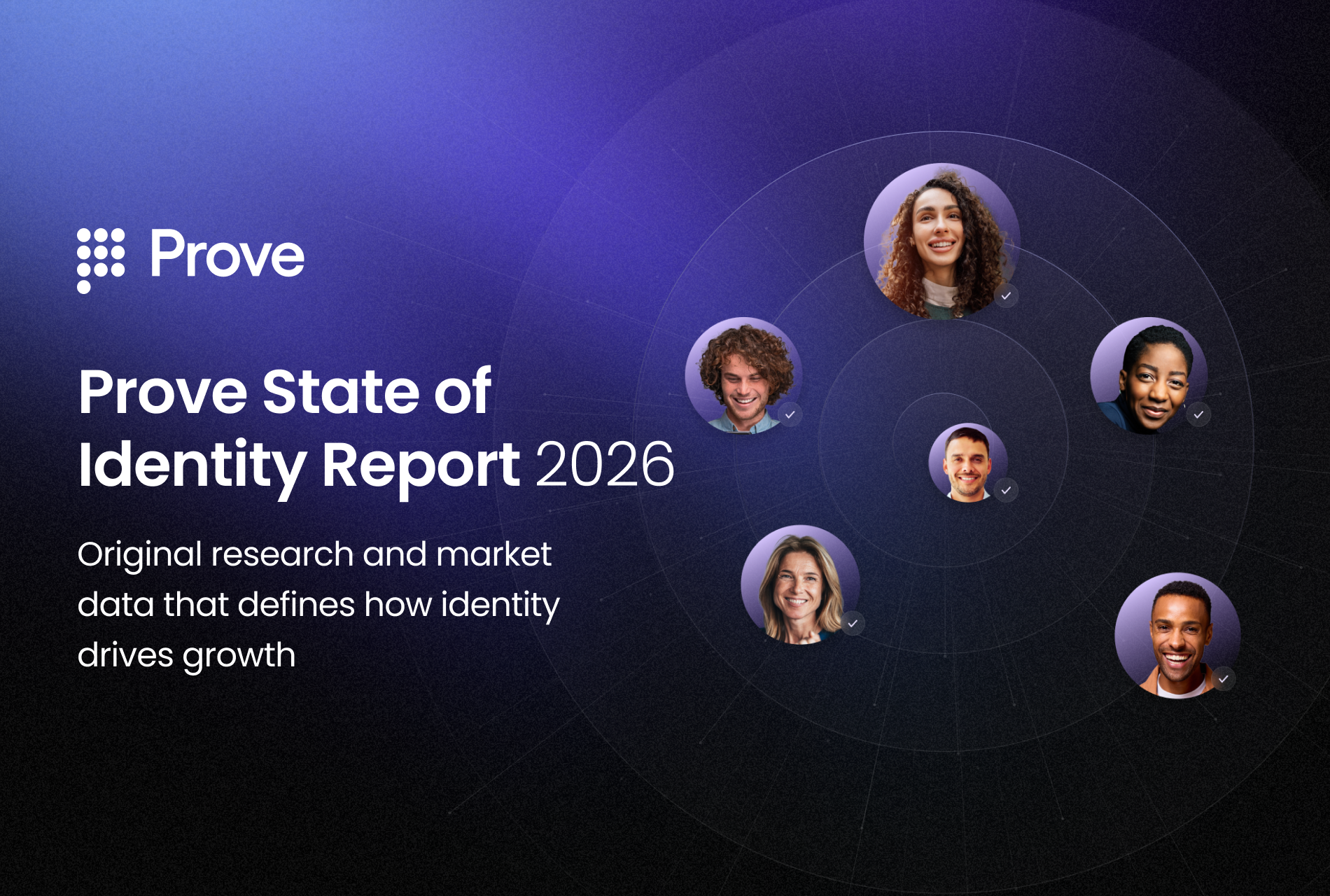PYMNTS TV: Prove CEO Rodger Desai Explains Need for Phone-Based Approach to Authentication

Prove’s CEO Rodger Desai was featured recently on PYMNTS TV, where he met with PYMNTS CEO Karen Webster to discuss trends and shifts in the identity verification market. He explains why phone-based, mobile means of authentication are among the most effective ways of making sure that employees and vendors are legit — and business identity theft scams are foiled at the point of contact. You can watch the interview here.

Desai explained the evolving landscape of identity verification and the pressing challenges faced by businesses in combating fraud and explained the increasing sophistication of identity fraud perpetrated by criminals and the urgent need for robust security measures in the digital economy.
The Rising Threat of Identity Fraud
Desai highlighted the alarming trend of criminals adopting increasingly brazen tactics to impersonate corporate executives, vendors, and employees. With the democratization of artificial intelligence, bad actors are leveraging technologies like deepfakes to deceive unsuspecting individuals. Desai recounted his own experience of encountering a deepfake website that manipulated his voice, underscoring the growing threat posed by identity fraud in today's digital landscape.
The Imperative of Phone-Based Identity Verification
As businesses grapple with the surge in identity fraud, Desai emphasized the pivotal role of the phone as the foundation of identity verification. Given that the phone is often the device used to commit fraud, Desai stressed the importance of leveraging phone-based authentication methods to authenticate interactions effectively. He emphasized the need for a new approach to authenticating individuals sending invoices, making phone calls, and sending text messages in light of the spike in business identity fraud.
The Cost of Insecurity: Imposter Scams and Business Fraud
Desai drew attention to the staggering financial losses incurred due to imposter scams and business fraud, highlighting the urgent need for enhanced security measures. Major breaches, such as the hack into Change Healthcare, have provided fraudsters with access to vast amounts of transactional data, enabling them to orchestrate sophisticated impersonation schemes and synthetic identity fraud. The lack of secure digital front doors in businesses has exacerbated the problem, allowing fraudsters to exploit repeatable interactions and redirect payments to their own accounts.
Cryptographic Signature Solutions for Enhanced Authentication
In response to the growing threat landscape, Desai proposed signature solutions as a critical component of authentication processes. By implementing cryptographic signatures tied to mobile devices, businesses can ensure secure verification of vendors and counterparties across various channels. Desai highlighted the role of automated authentication in streamlining verification processes, enabling businesses to authenticate interactions seamlessly and efficiently.
Building Trust through Automation and Onboarding
Desai underscored the importance of automating authentication processes and establishing a lineage of trust through onboarding procedures. By enrolling trusted phone numbers and devices, businesses can automate the authentication of individuals, thereby building a strong digital front door that keeps bad actors at bay. Desai emphasized the need for a standardized approach to onboarding vendor relationships, similar to the authentication processes used in financial institutions.
We encourage you to watch the interview with PYMNTS TV, and to learn more about how Prove can help your identity verification efforts.

Keep reading
 Read the article: Prove’s State of Identity Report Highlights the New Rules of Digital Trust
Read the article: Prove’s State of Identity Report Highlights the New Rules of Digital TrustProve’s State of Identity Report explores why traditional point-in-time verification is failing and how businesses can transition to a continuous, persistent identity model to reduce fraud and improve user experience.
 Read the article: The Super Bowl Highlights the Scale of Fraud in Online Sports Gaming
Read the article: The Super Bowl Highlights the Scale of Fraud in Online Sports GamingLearn how advanced identity verification helps sports betting operators combat fraud, deepfakes, and AI-driven threats.
 Read the article: Identity Has Been Redefined. Here’s What That Means Now.
Read the article: Identity Has Been Redefined. Here’s What That Means Now.In an era of deepfakes and automated fraud, traditional one-time identity verification is no longer enough. Learn why organizations must transition to continuous, adaptive identity systems to ensure security without sacrificing seamless user growth.













